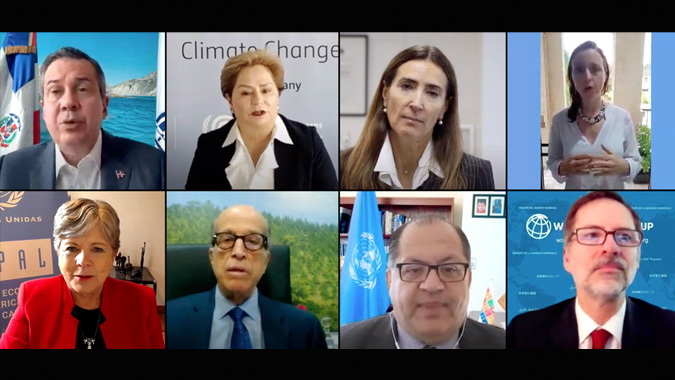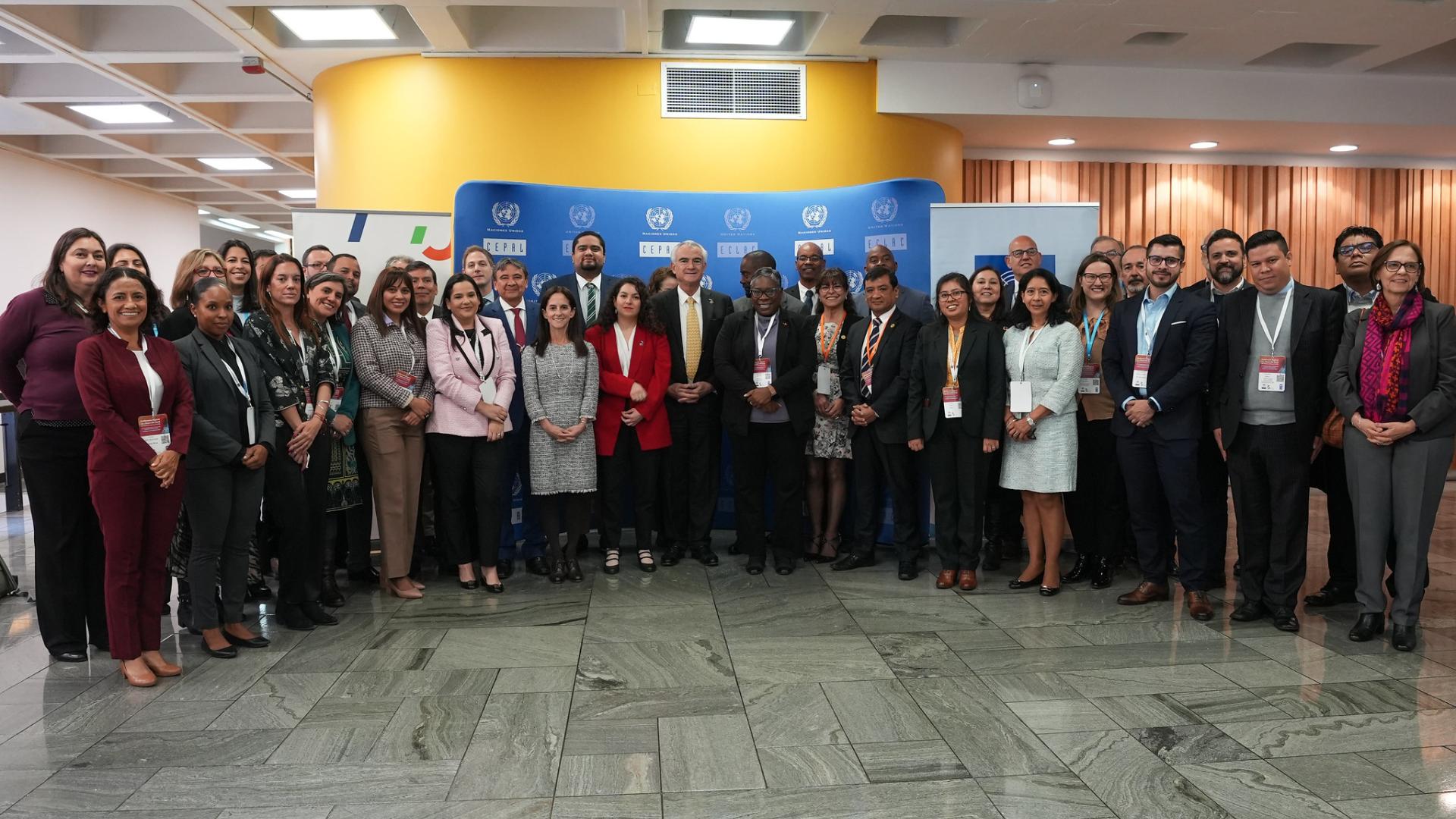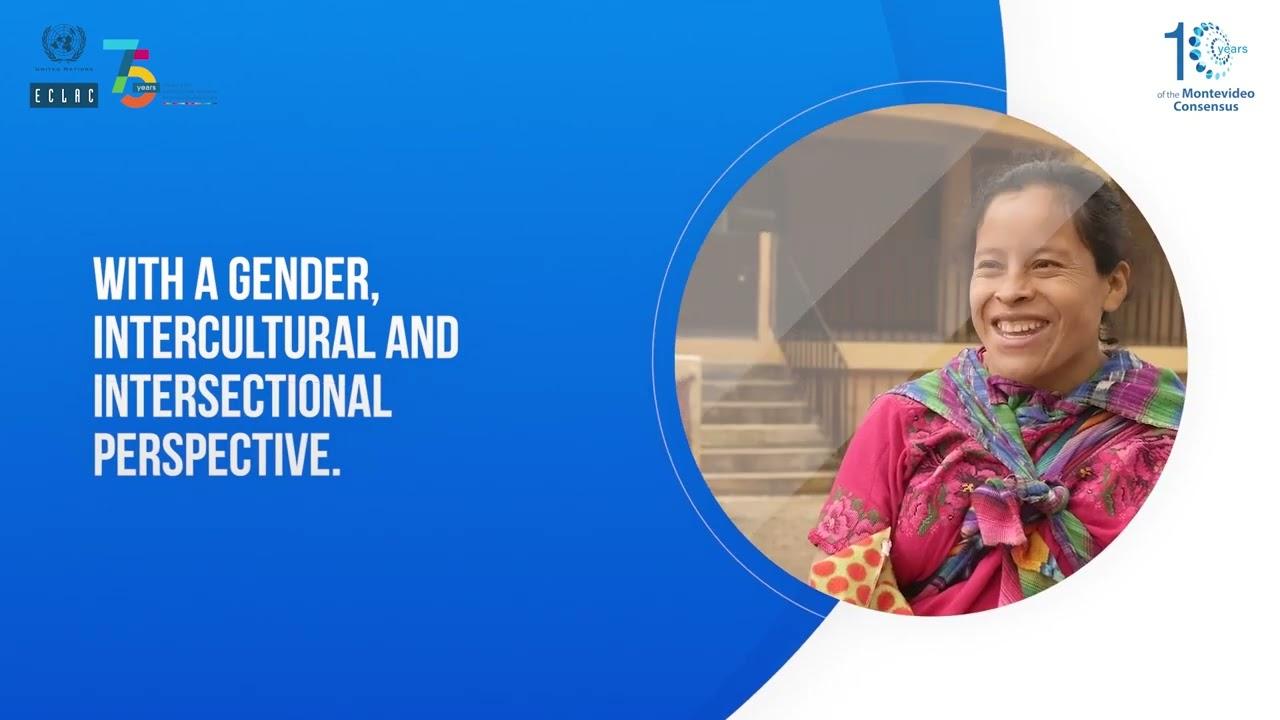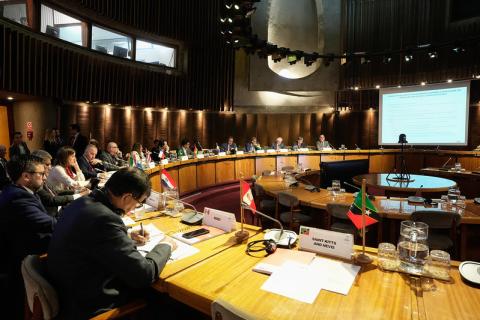Briefing note
The packages of measures implemented by governments to drive the post-pandemic economic reactivation are an opportunity to reorient the development pattern towards one that is more sustainable and inclusive, Alicia Bárcena, Executive Secretary of the Economic Commission for Latin America and the Caribbean (ECLAC), affirmed today during the inauguration of Climate Week 2021.
The senior United Nations official was one of the main speakers at the opening session of the virtual regional gathering, which is bringing together government representatives as well as private sector and civil society leaders to engage in dialogues aimed at seeking solutions, and to show what climate action is needed, with a view to the next United Nations Climate Change Conference, COP26, scheduled for this coming November in Glasgow (United Kingdom).
Participating along with Alicia Bárcena in the inauguration were Orlando Jorge Mera, Minister of Environment and Natural Resources of the Dominican Republic; Carolina Schmidt, Minister of Environment of Chile; Max Puig, Executive Vice President of the National Council for Climate Change of the Dominican Republic; Carlos Felipe Jaramillo, Regional Vice President of the World Bank for Latin America and the Caribbean; Patricia Espinosa, Executive Secretary of the United Nations Framework Convention on Climate Change; Luis Felipe Lopez-Calva, Regional Director of the United Nations Development Programme; and Piedad Martin, Deputy Regional Director of the United Nations Environment Programme.
In her remarks, delivered by video message, ECLAC’s highest authority affirmed that the COVID-19 pandemic has revealed and exacerbated the region’s major structural gaps, but it has also shown that the health crisis is not separate from climate change and that, on the contrary, the impacts of both scourges are very similar.
She added that decarbonization rates in Latin America and the Caribbean are insufficient for achieving the climate objectives committed to in the Nationally Determined Contributions (NDCs) or for being on par with the efforts consistent with science’s call to keep the temperature increase from exceeding 1.5 degrees Celsius.
“We must make the need to contribute to the Paris Agreement compatible with increasing technical progress, meeting economic objectives and social goals,” she underscored.
The senior United Nations official warned that the significant public investment being undertaken by countries, which seeks to create employment and boost demand, must be focused on more resilient, low-carbon activities.
“Latin America, with its measures in response to the emergency, is not contributing substantively to a greener future. These recovery packages are keeping us on an unsustainable path and do not foster structural change, reinforcing the incoherence between growth objectives, poverty reduction and sustainability,” she stated.
Alicia Bárcena emphasized that ECLAC proposes a transformative recovery with equality and sustainability. To that end, the Commission has identified eight sectors for a Big Push for Sustainability: the transition towards renewable energy, sustainable electromobility in cities, an inclusive digital revolution, the health-care manufacturing industry, the bioeconomy, the care economy, the circular economy, and sustainable tourism.
“These sectors would contribute to achieving growth rates on 3 dimensions at the same time: one that is compatible with external constraints, meaning substituting some critical imports; another on the quest for equality as a key goal of development, transferring from the wealthiest 1% to the poorest 1% via fiscal or other mechanisms; and third, a rate that would be compatible with our planet’s limits,” she explained.
In her message, ECLAC’s Executive Secretary stressed the importance of restoring the functions of nature and ecosystem integrity as fundamental core concepts for achieving resilience and adaptation in the region.
Furthermore, she made special mention of the situation faced by Caribbean countries, which, in addition to being highly indebted and very vulnerable to climate change, need climate action aimed at protecting the oceans, the coasts and, above all, the well-being of their population.
“This means relieving their debt to increase capacity for investing in resilience and adaptation, which are key elements for their recovery,” she stated.
Finally, Alicia Bárcena called for establishing clear rules, targets and responsibilities for climate action with the aim of averting social costs and private co-optations that could end up reducing the fiscal space for assisting the most vulnerable human groups and increasing inequalities.



